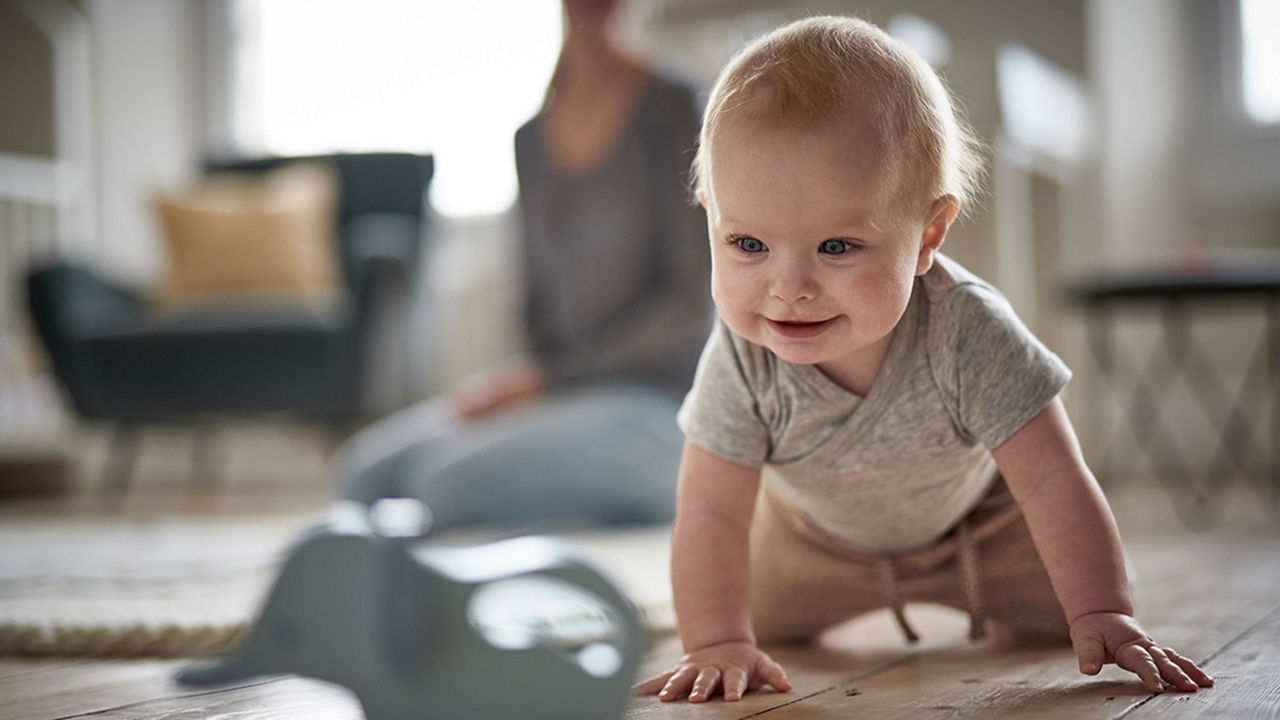Are all bacteria dangerous for your baby?
No
Bacteria are found in water, air, soil – they are everywhere. Although some can cause harm to the body (‘pathogenic’ bacteria), they are often harmless and can even be useful.
Their presence is completely normal, and we actually need them!
Reference GI Society – Canadian Society of Intestinal Research
Are viruses transmitted through the air we breathe?
Yes and No
When your baby is sick, they sneeze, cough and sputter out saliva that contains small virus-infected airborne particles. These can stay around, especially in enclosed rooms, such as their bedroom or a doctor’s waiting room. However, most viruses can’t survive in the open air for long, but some may be more resistant than others!
*Source: INPES (French administration)
Reference Science daily
Are antibiotics effective against viruses*?
No
If your baby is sick, be aware that antibiotics are only effective in fighting bacterial infections, they will have no effect against viral infections (bronchitis, flu, etc.). Please consult your doctor and seek advice if you are worried
*Source: Ameli (French social security)
Reference CDC – Centers for Disease Control and Prevention
Is a microscopic fungus also a microbe?
Yes
Microscopic fungi are living microorganisms that can cause fungal infections and can appear on your child's body - on the skin and mucous membranes (e.g. inside the mouth or nose). They usually appear as small red patches.
Warm, moist environments, such as small folds of skin, can also promote the development of fungal infections. It’s therefore important to dry your child well after bathing.
Reference Microbiology Society
Can microbes be present on toys?
Yes
Toys, whether made of plastic, wood or fabric, can carry a number of bacteria. So it’s important to make sure they’re cleaned regularly, either in the washing machine or in hot soapy water. Also try to make sure they don’t come into too much contact with your baby's mouth.
Reference Microbiology Society
Does the cold kill germs?
Yes and No
Unfortunately, not always.
Microbes are living organisms that can be very resistant and can grow between 10°C and 50°C.
Below 10°C their development is simply slowed down...
Remember to wash your own and your baby's hands carefully to avoid the spread of microbes.
Reference Insider
Does sneezing help keep germs away?
Yes
Don't hold your baby's sneeze in because some pathogens can be expelled from the body. Remember to wash your baby's hands to avoid any contagion.
*Source: INPES (French administration)
Reference Science Daily
Do thousands of bacteria live in your baby's gut?
Yes
Good bacteria (called ‘normal microbiota’) live in your baby's digestive system and are beneficial to their health and wellbeing.
How? Good bacteria help your baby's digestive system function properly e.g. by ingesting fiber that is not absorbed by the body or by producing nutrients and vitamins that your baby needs.
Reference Gut Microbiota for Health




